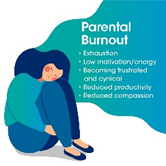What is Hypnosis?
- jackibinks
- Jul 23, 2023
- 7 min read

Ask leaders in the field, and I assure you that their answers will vary and all of them correct. It sounds like a contradiction, yes? Though the general agreement is that “hypnosis” exists and the fact is that something happens as a result of it. Let’s take a look at some definitions;
“Hypnosis is largely a question of your willingness to be receptive and responsive to ideas and to allow the ideas to act upon you without interference. These ideas we call suggestions.” - *Andre Weitzenhoffer and Ernest Hilgard
“Hypnosis is a state of intensified attention and receptiveness to an idea or a set of ideas.” - *Milton Erickson
“In hypnosis, the subconscious, having no power to reason, accepts and acts upon any fact or suggestion given to it by the conscious mind.” - *Frank Caprio and Joseph Berger
And what is almost always present in anyone’s definition is an altered state, conscious/ unconscious functioning, and heightened suggestibility.
I believe hypnosis is a relaxation process that passes the conscious mind and allows access to the unconscious mind, producing a highly focused state of mind in which people experience increased attention, concentration, and suggestibility to achieve positive change within their lives.
How Does Hypnosis Work?
For the hypnosis process to be effective, three components must be present: Belief, Trust, and Imagination.

The definition of belief is an attitude that something is the case, or that some proposition is true.
With that being said, when we think of something we believe in like “I believe what my leader says”, “I believe there should be punishment for illegal behaviour”, “I believe in being a good person”, and so on. These are guiding principles that give direction and meaning in our lives and form the basis of how we see the world.
When we believe in something we are telling our brains about what is happening and then the brain sends messages to the body on how to respond. We can talk about the concept of the mind and body connection further at another time. Beliefs and values (principles, ideals, or standards of behaviour) have a massive influence and power in our lives and how we choose to live our life.

Trust is defined as confidence in or dependence on a person or quality. You must trust yourself to trust the process and to trust the process is to trust your choice of a hypnotherapist. Sounds tough, doesn’t it? How do I trust a process and have never done it before nor more than likely with a person I have only just met, right?
Let us start with trusting ourselves. For most of us, it’s a given, the person we trust the most in the world is ourselves. Though if you are having trouble, we can look at our unconscious mind for clarification. Many of us have heard the terms unconscious or subconscious and conscious minds, but what are they? I will clarify what these are later in the blog.
Second, trust the process. Have you ever tried talking to someone who is watching TV or on their phone and found it hard to get their attention? Or have you driven somewhere and got to your destination and can’t recall the journey?
Many of us feel submerged and involved in a hobby that we enjoy and feel relaxed in, like reading a book/magazine or tinkering in the shed. These examples are naturally occurring trance states, which many of us feel and enter into once or multiple times daily.
With Hypnosis, you are guided into this well-known natural trance state for an intended purpose. And to be guided into a trance all you need to do is follow the instructions given to you by the hypnotherapist or yourself. If I was to ask you to rob a service station whilst you were in trance and it doesn’t align with your core beliefs and values, you will not do it.
Thirdly, trust your choice in choosing Hypnosis and in turn the Hypnotherapist. For many of us, this can be a daunting experience. There are a lot of things to consider when selecting a Hypnotherapist for the ever-growing pool of professionals.
As it is a very personal journey, I suggest you pick a Hypnotherapist that ticks all the boxes for you. They may give you that authentic honest vibe that ‘feels’ just right. You may even need to ‘see’ them, in a picture or video call for an interview to help you decide, and also their voice may need to resonate with you. Some, more, or all of these characteristics may come into play when choosing a hypnotherapist.
Is their fee on par with community standards and are they available when you need the session? Feel confident to ask more about their qualifications and skills, background, and knowledge to consider whether their services will be able to meet your needs.
You don’t have to make your mind up straight away, the phone/video call is a great way to work out if they are the "right fit". When you have made your decision, make your appointment. Enjoy and trust the journey, you know you have made the right decision for yourself.

Hypnosis requires you to use your imagination. Imagination is described as the process of forming new images in the mind that have not been previously experienced with the help of what has been seen, heard, or felt before, or at least only partially or in different combinations. This could also be involved with thinking out possible or impossible outcomes of something or someone in life's abundant situations and experiences.
This is what makes Hypnosis fun and enjoyable. It is where you can play and let your mind be free to imagine. You can imagine what you what to achieve and/or what you want to change or improve upon. The magic of hypnosis is, it can assist you with almost anything you put your mind to which is within your control.
What is the Unconscious and Conscious Mind?

“Consciousness” means awareness. When you are conscious of something, you know it and are aware of it. The conscious mind is analytical, sequential, cognitive, goal setter, directs outcomes, limited focus, and controls thinking, just to name a few.
The unconscious mind is out of your awareness. It is critical for the health and function of every cell of every organ, bone tissue, etc that is contained in your body. The unconscious mind is unlimited, expansive, it is dominant while sleeping and dreaming, responsible for involuntary movements, intuitive, and knows how to solve problems that we cannot solve consciously.
The below reference from Hypnosis A Comprehensive Guide, Tad James, MS, Phd with Lorraine Flores & Jack Schober 2000 is a wonderful explanation of the unconscious mind.
“The doorway to success in hypnosis is the Unconscious Mind. Your Unconscious Mind not only holds information that is outside your conscious, but it also manages sensations and body functions. A moment after reading this sentence, you probably were not aware of the feeling of your feet against the floor, or your back against the chair. You have sensations coming to your body all the time, but you remain unaware of most of them. In addition to managing all these sensations, your Unconscious Mind keeps your heart beating, your blood circulating, your digestion working, and your lymph system operating.….and makes your eyes blink without your conscious awareness. It’s exciting to know that your Unconscious Mind manages all of that with perfect precision.”

Myths, Misconceptions, and Fears of Hypnosis.
Onto the myths, misconceptions, and fears about hypnosis. Unbelievably, there is a common belief that only the gullible and weak-minded can be hypnotised, while people of any intelligence who are capable of concentrating and have an active and vivid imagination are more successful in gaining positive results in hypnotherapy.
Fear of humiliation, loss of control, and/or that they will tell all their secrets is considered to be true by people and this stems from television or stage shows. The illusion that the hypnotherapist has power over his client runs very deep in the public consciousness. Where in reality, the ‘power’ lies in the mind of the client, because in hypnosis, he has greater awareness than when he is fully awake and completely retains his powers of selectivity in his/her beliefs and values.
Not waking up and getting stuck in a hypnotic state is a fear among many. A person cannot “get stuck” in a hypnotic state and a person cannot fall into a hypnotic slumber. There are superficial similarities between hypnosis and sleep and the fact is that hypnosis is not sleep. Sleep and hypnosis are two different states psychologically and physiologically. In hypnosis the terms “wake up”, and “waking up now” is technically inappropriate terminology. These are the terms that we as the general population understand which brings us back from the relaxed natural state of hypnosis when our hypnotherapist instructs that we do so.
If you enjoy the relaxed state so much that you do not want to come back to full waking consciousness just yet or when instructed to do so, one of two things will happen; 1. You will come out on your own accord in a very short time, or 2. You will fall into a natural sleep until you wake up naturally.
One of the biggest barriers many people have when experiencing hypnosis is their expectation of it being a state of unconsciousness or sleep. And because of this inaccurate expectation, they feel that they were not hypnotised or that they cannot be hypnotised. If you can follow instructions given to you by the hypnotherapist and that they align with your beliefs and values you will become hypnotised. When you are hypnotised you will hear everything that is said, even be acutely aware of everything going on around you. The wonderful feeling to look forward in hypnosis and the feeling of total and complete relaxation.
What Can Hypnosis Be Used For?
Hypnotherapy is used to treat a wide range of conditions, issues, goals, and unwanted/unhealthy behaviours, such as;
Conclusion
Therefore, if a person has the belief that he/she can be hypnotised, trusts himself, the process, and his hypnotherapist, and can use his imagination, then he will be hypnotised – every time.
For more information on how hypnotherapy can help you, or if you would like to share your thoughts or have any questions please don’t hesitate to call 0423 913 477 or email jacki@embraceyourpower.com.au
Feel Better – Think Better – Live Better


















Comments